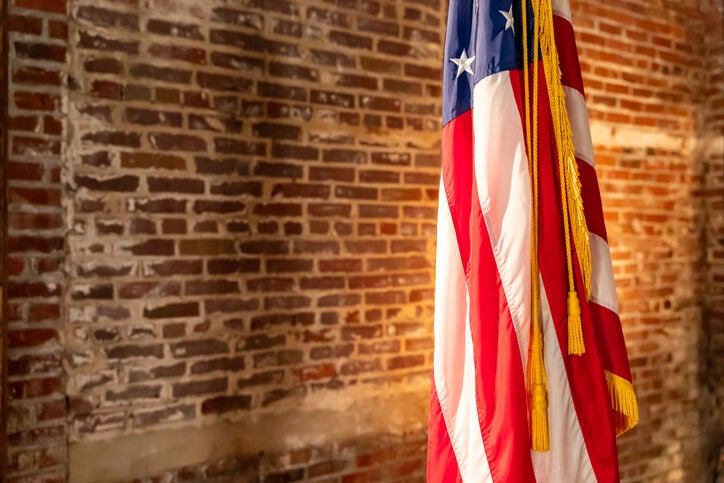PHOENIX — State lawmakers, courting a likely lawsuit, voted Tuesday to require students to recite the Pledge of Allegiance each day.
Existing law spells out that schools have to set aside time each day “for students who wish to recite the pledge.’’ But HB2523, approved by the House on a 31-29 party-line vote, adds language that says each student “shall recite the Pledge of Allegiance to the United States flag during this time.’’
The only exceptions would be for students who have a request from a parent to opt out, or for students who are at least 18, who could refuse. The measure now goes to the Senate.
“We stand and recite the Pledge of Allegiance every day on this floor. What’s good for us is good for the children,’’ Rep. Barbara Parker, R-Mesa, told colleagues.
The measure is illegal, said Rep. Jennifer Pawlik, D-Chandler.
There was a 1940 U.S. Supreme Court ruling saying Jehovah’s Witnesses could be required to salute the flag and recite the pledge despite religious objections.
But Pawlik noted the court reversed its stance three years later after the West Virginia Board of Education adopted a resolution ordering that the salute to the flag become a regular part of activities in public schools, requiring students to participate and saying refusal would be “regarded as an act of insubordination, and shall be dealt with accordingly.’’
Justice Robert Jackson wrote: “If there is any fixed star in our constitutional constellation, it is that no official, high or petty, can prescribe what shall be orthodox in politics, nationalism, religion, or other matters of opinion or force citizens to confess by word or act their faith therein. If there are any circumstances which permit an exception, they do not now occur to us.’’
Pawlik said that was buttressed by a 1969 Supreme Court ruling that upheld the First Amendment right of students to wear black armbands at school as a silent protest against the war in Vietnam.
“It can hardly be argued that either students or teachers shed their constitutional rights to freedom of speech or expression at the schoolhouse gate,’’ wrote Justice Abe Fortas.
Parker, however, presented a series of arguments she said support her legislation.
One, she said, is that there is nothing in the U.S. Constitution requiring separation of church and state. The only restriction, said Parker, is that the government cannot form or enforce a state religion.
She also pointed out that when the Supreme Court ruled in 1943, the words “under God’’ were not in the pledge.
Finally, she said, nothing changes for students who don’t want to say the pledge — at least for those whose parents excuse them from that obligation.
“The current law is that parents have a right to direct the education of their child,’’ Parker said. “And this is a parents’ rights state.’’
In a separate measure, a vote is pending in the Senate on a related bill to financially penalize schools that do not obey existing laws requiring a U.S. flag in each classroom.
“This is to make sure that students growing up understand the country in which they live and embrace the citizenship and the founding principles that we hold so dear,’’ said Sen. Wendy Rogers, R-Flagstaff.
Rogers acknowledged she had no figures on how many schools were not following the law. But she said she had heard from constituents that there are instances of noncompliance.
A winter storm swept into Tucson from the southwest Feb. 21, bringing heavy rain and wind to some areas, as well as possible hail and lightning, according to the National Weather Service. Video courtesy of University of Arizona Department of Hydrology and Atmospheric Sciences.





